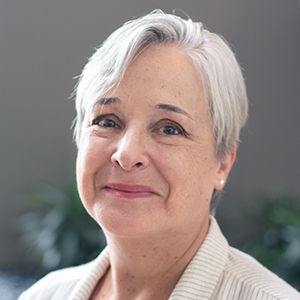It's about time
Our concept of time is dictated, at least in part, by how we spend our days. For those who work in academia, the year is shaped by the cycle of semesters and vacations that make up a school calendar, and days might include set hours for teaching, study, writing and research.
When I was home taking care of infant children, I lived very much in the moment, and many moments dragged interminably. My sleep-deprived brain seldom could look beyond the next feeding or diaper change. Toilet training and teething were processes that took months but seemed to go on for years. Yet when my children went off to elementary school, it had all passed in a flash.
For a couple of years, I had a job as an administrator in an Episcopal church. Many of my tasks, such as newsletters and bulletins, had weekly or monthly deadlines, but hovering overhead was the great cycle of the liturgical year with its ancient rituals. The feast of Pentecost might fall in May, but January wasn’t too early to start planning.
When I worked at a daily newspaper, we had a 24-hour cycle that reset every night as soon as the next day’s issue landed in the press room. We all liked working on long-term projects, but every day we had to feed the beast — and that was the schedule that drove us. The advent of 24-hour online news only made the pace more frantic.
As managing editor of this magazine, I have gone back to looking many months into the future. We spend a fair bit of time planning our feature stories and special issues, and we also need to keep in mind the calendar of the American Society for Biochemistry and Molecular Biology — the hub of which is the annual meeting.
Here at ASBMB central, we constantly think and talk about the society’s biggest event; the next annual meeting is forever looming, even the day after the last one ends. We aim to include annual meeting information in almost every issue of ASBMB Today — because it’s that important.
This month, we profile the 12 fascinating people who have been named recipients of the ASBMB’s annual awards and will speak at the 2020 annual meeting in San Diego. In the past, we’ve profiled award winners right before the meeting; here, we’re trying something new. The 2020 meeting may be five months away, but once you’ve read about these researchers — their lives and their science — I think you’ll want to register right away.
Depending on the pace of your life right now, those five months could just fly by.
Enjoy reading ASBMB Today?
Become a member to receive the print edition four times a year and the digital edition monthly.
Learn moreGet the latest from ASBMB Today
Enter your email address, and we’ll send you a weekly email with recent articles, interviews and more.
Latest in Opinions
Opinions highlights or most popular articles

Women’s health cannot leave rare diseases behind
A physician living with lymphangioleiomyomatosis and a basic scientist explain why patient-driven, trial-ready research is essential to turning momentum into meaningful progress.

Making my spicy brain work for me
Researcher Reid Blanchett reflects on her journey navigating mental health struggles through graduate school. She found a new path in bioinformatics, proving that science can be flexible, forgiving and full of second chances.

The tortoise wins: How slowing down saved my Ph.D.
Graduate student Amy Bounds reflects on how slowing down in the lab not only improved her relationship with work but also made her a more productive scientist.

How pediatric cataracts shaped my scientific journey
Undergraduate student Grace Jones shares how she transformed her childhood cataract diagnosis into a scientific purpose. She explores how biochemistry can bring a clearer vision to others, and how personal history can shape discovery.

Debugging my code and teaching with ChatGPT
AI tools like ChatGPT have changed the way an assistant professor teaches and does research. But, he asserts that real growth still comes from struggle, and educators must help students use AI wisely — as scaffolds, not shortcuts.

AI in the lab: The power of smarter questions
An assistant professor discusses AI's evolution from a buzzword to a trusted research partner. It helps streamline reviews, troubleshoot code, save time and spark ideas, but its success relies on combining AI with expertise and critical thinking.

